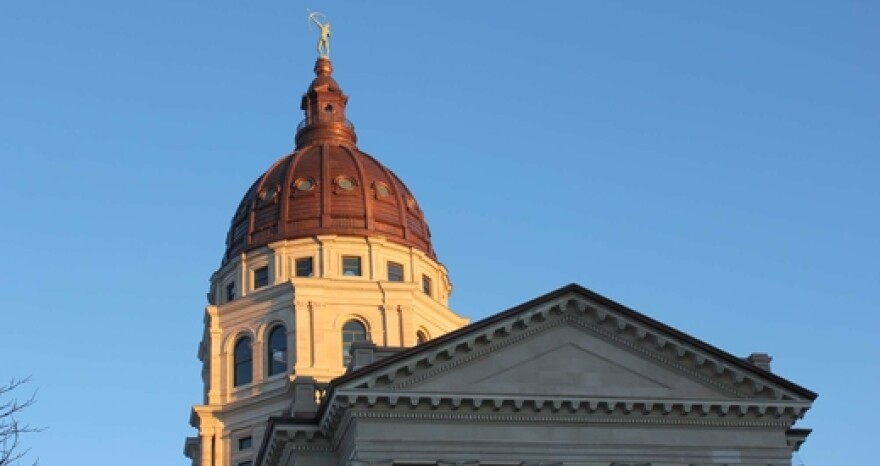Kansas legislators hoped to settle on a proposed constitutional amendment Friday that would curb the power of the courts following a recent Supreme Court mandate to change the way public schools are funded.
The state House and Senate judiciary committees convened for a joint meeting to discuss proposed amendments to the state constitution to block the courts from threatening to close schools in education funding lawsuits. Lawmakers are looking at two versions of that and have been grappling over how to protect wealthier school districts while boosting funding for poorer ones to satisfy the state Supreme Court.
The discussions preview what is likely to be an intense political dispute when lawmakers convene next week for a special session of the Republican-dominated Legislature. It's a regional fight pitting lawmakers from affluent Kansas City-area suburbs in Johnson County against legislators from other parts of the state.
Republican Gov. Sam Brownback called the special session to address the recent ruling that the state's education funding system remains unfair to poor school districts. The justices warned that schools might not reopen after June 30 unless lawmakers make additional changes.
Some GOP legislators remain upset about the order and argue that the court has exceeded its authority. Republican Reps. John Rubin, of Shawnee, and Jan Pauls, of Hutchinson, counseled defying the latest order and declaring that the Legislature has the sole power to settle education funding questions.
"We keep guessing what we think they want," Pauls said. "I don't like the idea of just throwing more money in."
The proposed constitutional changes are a long-term response to the court's latest order. If lawmakers approve an amendment by two-thirds majorities in both chambers, it would go to voters in the November election.
But key Republicans have acknowledged that they'll also have to pursue a short-term fix that at least redistributes existing dollars to help poor districts.
The state spends more than $4 billion a year on aid to its 286 school districts, and Brownback is pushing a plan to increase that amount by $38 million for 2016-17.
Top Democrats have embraced the plan and offered proposals Friday to cover the extra spending by diverting unused social services and economic development funds to schools and shifting existing education dollars for online teaching and emergency school needs. Senate Judiciary Committee Chairman Jeff King suggested diverting $25 million in highway funds to schools.
But such a plan still would redistribute some money from wealthier districts, particularly in Johnson County, the state's most populous county and a GOP stronghold. School superintendents and chambers of commerce there are backing a plan to increase state aid by $50 million so that no district loses anything.
"I don't know that I could support something that doesn't have a 'hold harmless' provision," said Sen. Julia Lynn, a Republican from Olathe, where the local district stands to lose about $898,000.
But other legislators debated whether the court would accept a provision to help wealthy districts when its order requires lawmakers to help poor ones. Rep. Steven Becker, a Buhler Republican and retired district court judge, said legislators are pressed by the court's June 30 deadline.
"We do not have the luxury of having a Plan B," he said.





